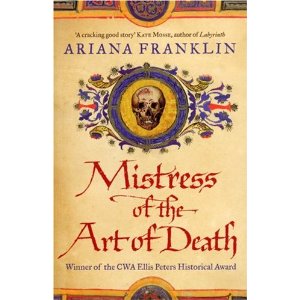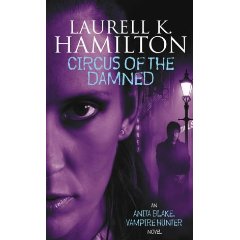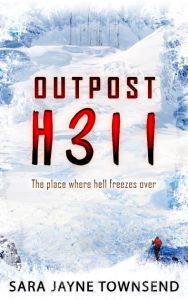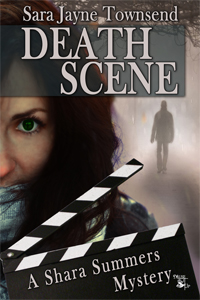Archive for the ‘review’ Tag
Book Review: “11.22.63”
 My fangirl adoration for Stephen King is well documented. That’s not to say I have given every book of his a five star rating. It is true that most of the ones I have read, I have loved. Some I have only liked. And there are some I haven’t read at all.
My fangirl adoration for Stephen King is well documented. That’s not to say I have given every book of his a five star rating. It is true that most of the ones I have read, I have loved. Some I have only liked. And there are some I haven’t read at all.
Although King has a reputation as a horror writer, quite a lot of his books are not horror at all. His ability to tell a good story transcends all genres. 11.22.63 is not in any way a horror novel – as a time travel story, if it falls under any category at all, I would call it science fiction. But it’s far and away the best novel he’s written in many years. In fact, I’d say it’s the best Stephen King novel since NEEDFUL THINGS.
One of the things I always thought stood out about Stephen King’s writing is his ability to take an ordinary, flawed, perfectly realistic character and study how they are tested when they suddenly find themselves in an extraordinary situation. The “everyman” in 11.22.63 is Jake Epping, a thirty-something schoolteacher, divorced from an alcoholic wife and though a perfectly nice guy there’s nothing remotely remarkable about him.
Then one day the owner of the local diner, Al Templeton, lets Jake into a secret. There’s a wormhole to the past in the back of the diner. Al tells Jake three important things about the wormhole. First, it always brings you out in the same place and the same point in time: a morning in September in 1958. Second, no matter how long you spend in the past, you come back into the present two minutes after you left. Third, should you go back through the wormhole again, everything resets itself and the changes you have instigated are erased.
Al has spent four years in the past, with an obsessive mission to prevent the assassination of JF Kennedy. He is convinced that if Kennedy lives, the Vietnam War won’t happen and the world will be a better place. But he’s dying of cancer and he won’t live long enough to get to 22 November 1963, and so he has returned to the present, and has tasked Jake to do this for him. Jake is young, fit and single, and a chain of events eventually lead Jake to believe that he has no option but to take on Al’s mission – return to the past and prevent the assassination of Kennedy.
Everyone who’s read Ray Bradbury’s “A Sound of Thunder” – or even seen “Back to the Future” – knows that changing the past, no matter how trivial, always has an effect on the future and not always for the better. “The past is obdurate”, Al tells Jake and he soon learns just how true that is. Changing the past affects the present, and the past resists change. The bigger the change, the more obstacles get in Jake’s way – mechanical failures, traffic accidents, stomach bugs and various other events all happen at the most inconvenient times possible. And it’s not just the assassination of Kennedy that Jake tries to prevent – since he has knowledge of the future, he tries to fix a few other things that went wrong in the past, too.
The journey that Jake undertakes changes him, and the man he is at the end of the novel is very different from the man he is at the beginning. And although I kept on thinking through the novel that there had to be one of two possible endings, since we live in a time when Kennedy was assassinated on 22 November 1963, and Stephen King doesn’t deal in alternative realities. Either Jake fails in his mission, or after succeeding he has to go back in the past for some reason and it resets iself. I then found myself trying to predict what that reason might be. But the ending came as a complete surprise, proving that even after all these years, King is still master of the ‘twist’ ending.
Anyone who’s a Stephen King fan will love this book. If you’ve never read Stephen King because you’re not a fan of horror, then I suggest you start with this one. It’s not scary, but it’s a thrilling ride and even though it’s a very long novel, you’ll be turning the pages to find out what happens next.
Dark Scribe Magazine Reviews “Suffer the Children”
Here is the link to the latest review of STC, from online horror mag Dark Scribe.
I’m firstly very impressed the review comes from Rick R. Reed, himself a many-times-published and well known horror writer. I’m also impressed that he’s recommending it.
As far as reviews go, it’s not completely glowing, as he does point out some places where he feels there is room for improvement. He feels that the story is somewhat sluggish in getting started. Well, maybe he’s got a point. Others have made the same comment.
However, he does also say the book would have benefitted from a good editor, and I would contest, on that point, that I have one!
In any case, I’m not actually complaining because balanced reviews are the best kind. I am always suspicious of any book on Amazon that lists nothing but dozens of five-star reviews without any word of criticism from anyone – makes me think the author’s bribed his or her mates to post loads of reviews.
So this review’s going up on the website with all the others, and I am very grateful that Mr Reed took the time to read it and offer an opinion.
Review of “Tron: Legacy”
I don’t normally review films on this blog, but the last film I saw had quite an impact on me and I would like to do a post about it.
I didn’t see “Tron” when it first came out. I wasn’t gaming nerd or sci fi geek in those days. In fact, I wasn’t interested in sci fi at all until I saw “Star Wars” (which was in late 1982, on video), and after that I could be more accurately described as a Star Was fanatic instead of a sci fi geek.
Anyway, it happened that “Tron” was on TV a few months ago, and the day after we saw it, we went to the cinema to see “Resident Evil – Afterlife” and “Tron: Legacy” was trailered there. So, our interest piqued, we went to see it when it hit the cinemas.
“Tron: Legacy” is part remake, part sequel. Set twenty years on, Sam Flynn, son of the original main character Kevin Flynn, tries to find out why his father disappeared without a trace, and discovers that Kevin was sucked into the ‘net’ – or at least what the idea of the ‘net’ was in the 80’s.
The film makes no attempt to update the computer graphics of the film from the basic pixels that we had in 80’s video games, but it couldn’t really do otherwise, if it wanted to remain true to the original film. The best special effects, I have to say, involve the creation of a CGI Jeff Bridges. The real, aged, Jeff Bridges turns up later in the film and you know the younger version you’ve seen earlier has to be a CGI creation, because frankly Jeff Bridges just isn’t that young anymore. But it’s so real that you do start to wonder if maybe somehow you have gone back in time – and that, in essence, is the spirit behind the whole film.
I couldn’t decide when I saw “Tron: Legacy” whether I liked it or not. It’s a film with one foot in the 80’s and one foot in the 21st century. But this is precisely what it sets out to achieve.
The best and worst parts of this film, to my mind, are actually the same scene. Sam Flynn, in his hunt for his father, returns to the video arcade, Flynn’s, that was featured in the original film. It’s been closed up and abandoned for 20 years, and yet when he turns on the power, all the retro computer games flare into life. I find it hard to believe anyone thought to pay the electricity bill in an abandoned building for the last 20 years.
When the power comes on, however, the juke box starts playing – at an incredible volume – Journey’s “Separate Ways”. This song is so indicative of the 80’s, and so appropriate a soundtrack for the themes in “Tron” – and such a powerful reminder of why Journey sum up the decade of the 80’s – that I was willing to forgive the whole issue of why the abandoned arcade still had electricity.
If you’re an 80’s kid and a sci fi fan, you’ll find things to love about “Tron: Legacy”, in spite its flaws.
This film’s power to take me back to the 80’s is the reason it had such a profound effect on me. The “Separate Ways” soundtrack was part of the impact, and for that reason I leave you with the video – available on Youtube – of this song. Music, outfits, hairstyles – it’s just so wonderfully 80s in every way.
Review of “Mistress of the Art of Death”
I was gutted to hear about the death of Diana Norman, British writer and journalist, and wife of Barry Norman (also a well-known British journalist, and face of the BBC’s Film Review programme for most of the 80s and 90s).

Writing as Ariana Franklin, Diana Norman was the author of the “Mistress of the Art of Death” series, and it seems a fitting tribute to talk about these on my blog today.
The first book is set in 12th-century England. The bodies of several murdered children have been discovered in Cambridge. The Jews are blamed, and are being persecuted by the locals. This troubles the King, Henry II, who is rather fond of the Jews, mostly because they pay him a lot in taxes. He calls for the King of Sicily, a land advanced in forensic medicine, to send him a “master of the art of death”, someone who can study the children’s bodies to determine what happened to them. The King of Sicily sends his best forensic expert, but the “master” is a “mistress” – a woman doctor from the Salerno School of Medicine, one of the few such schools enlightened enough in those days to admit female students.
Adelia is skilled at what she does, but she finds England a primitive, unenlightened place, where women with unusual skills are persecuted as witches. In the interests of her own safety, she and her travelling companion,the Arab Mansur, concoct a plan: he will pretend to be the doctor, and claim to not speak English, so when he allegedly studies the patient she will translate for him, thus requiring her presence at the scene without arousing suspicion.
The author’s descriptions make medieval England come alive, and Henry II, who appears as a character, seems impressively accurate – an arrogant man, clearly accustomed to giving orders and having them obeyed, yet more comfortable hunting than politicking, and for all his flaws he comes across as something of an egalitarian – respecting people skillled in their craft, regardless of race, creed or gender. So it comes to pass that Adelia impresses him with her ability to ‘speak’ to corpses and when she covers the true murderer of the children, Henry decides she must remain in England so that he can call on her again in the future.
I am fond of strong female characters, and although the unenlightened age of medieval England did not exactly encourage independent-minded women, Adelia comes across as a realistic and appealing character, doing her best to find a place in this strange and primitive land where she doesn’t belong.
I have read the first three books in this series. I have been looking forward to reading the fourth, and now sadly final, tale of Adelia’s adventures.
Another Review for SUFFER THE CHILDREN
I am thrilled to be able to announce that SUFFER THE CHILDREN has been reviewed on the “Bitten By Books” paranormal review site. Not only it is a favourable review, it’s earned a “4-tombstone” rating.
Exciting news!
This review is hot off the press – so hot, in fact, I wouldn’t have known it was there had sharp-eyed Sonya Clark not noticed it and sent me the link – so a big thank you to Sonya!
See the full review here.
Slowly, but surely, STC is starting to make a splash. It’s all good.
More Good Reviews
Positive reviews for SUFFER THE CHILDREN continue to roll in. I find this very encouraging. I decided that I will report all reviews, be they good or bad, but so far everyone who’s reviewed it seems to like it.
Here is what Sonya Clark, fellow Lyrical Press writer, has to say:
One thing that especially struck me about this was the age of the victims, mostly 18 to 21. Old enough to be legal adults, which coupled with their fringe status helped ensure no one would look for them, but still young enough to not really be adults in the true sense. It’s an incredibly vulnerable time in a person’s life. The feeling that you could slip off the edge of the world and no one would even notice is terrifying, and recalling that feeling really upped the tension for me while reading this. Though at times a difficult read – Leanne has had a very rough upbringing – I liked the book very much and would recommend it to anyone who likes old-school horror.
To see the complete review, click here.
I’ve also had a review from vampire writer Tony-Paul de Vissage, who says:
At first, I thought Suffer the Children was going to be a very mature Young Adult story, but after the first chapter, my opinion was very quickly changed. Without giving the story again, let me say it’s an intriguing tale, and basing it on a certain supernatural legend (that has been rarely used and deservedly should be given more literary attention) gives it that little something extra. From my very distant and more mature outlook, I found the younger characters very believable. Though the setting for the story is the UK, I didn’t find their behavior so different from a US student in the same situation. Suffer the Children is a very enjoyable and suspenseful read.
Full review here. You need to click on the “Book Reviews” link to get to the right page.
I don’t know if good reviews sell e-books, but it can’t hurt. And on that note, if anyone else out there enjoys reading SUFFER THE CHILDREN and wants to say a few words about it, I would be happy to hear from you.
First Review of SUFFER THE CHILDREN
SUFFER THE CHILDREN has been reviewed on the Bookwenches site. They’ve given it a rating of 4.5, which is somewhere between ‘good’ and ‘excellent’ and really not too shabby at all!
I am very chuffed!
Book Review: “Nobody True” by James Herbert
I first discovered horror in my teens, and my two heroes of the genre were Stephen King and James Herbert.
I’ve not read much horror recently – my literary tastes have been leaning more towards crime and urban fantasy of late. But discovering “Nobody True” was like revisiting an old friend I’ve not seen in ages, and then discovering you fall into conversation so easily you might have seen each other only yesterday. Though I noted with interest that Herbert isn’t plugged as a ‘horror’ writer these days. No. He’s a ‘chiller’ writer, apparently. I guess ‘horror’ is still considered an unfashionable term.

I was drawn to this book by its intriguing premise. The main character, James True, is a man who can astrally project. One night after his spiritual self has been off having adventures, he returns to his body to discover it’s nothing but a bloody pulp. He’s been murdered, while his spirit has been absent. But who killed him? This is what James sets to discover. Was it the serial killer who’s been leaving mutilated corpses all over London? Was it True’s business partner, with whom he’d had a argument on the night he died?
James True is an engaging character, talking to the reader like a close friend. As he tells you all about his background – his clinging and paranoid mother; his near-death experience on a motorcycle as a student, which led to an early out of body experience; his art college course which led to a career in advertising – the character becomes a three dimensional being. I also wondered how much of this character is based on James Herbert himself – indeed, they share the same first name; Herbert used to be an art director at an advertising agency before becoming a full time writer; both author and character are London-based and grew up in Catholic families.
I thoroughly enjoyed this book, which kept me gripped right from the cliff-hanging beginning to the poignant, somewhat philosophical ending.
It’s given me a taste for more horror, and reminded me what a damn good writer James Herbert is. He’s one of the special guests at the World Horror Convention in Brighton next month. Maybe I’ll get to tell him that in person…
Book review of “The Likeness”
I found Tana French’s “The Likeness” in Borders in their half price closing down sale. This is the second book in a series. I haven’t read the first book, but I picked this one up and it looked good so I decided to take a chance on it.

The main character is Cassie Maddox, a young cop who has been removed from the murder squad following a traumatic injury – which I assume happened in the first book of the series. At the beginning of the book, Cassie refers back to an undercover job she did years ago, where she created a character, Lexie Madison, which would be her persona for the job. Some years later, as the events of “The Likeness” unfold, a body of a woman is found. She is carrying Lexie Madison’s ID, and wearing Cassie’s face.
In order to try and flush out the killer, Cassie and her colleagues decide to make use of this unique opportunity. They spread the story that Lexie has been injured, not killed. Cassie picks up her identity and inserts herself into Lexie’s life.
It’s an intriguing idea, and I found myself drawn to the likeable character of Cassie as she tries to live Lexie’s life and get under the skin of her four odd but fascinating housemates. It becomes quite clear that they are all hiding secrets. Cassie finds herself sucked into Lexie Madison’s life as she learns more about the housemates, all the while trying to discover what happened to Lexie.
I enjoyed this book. The writing was competent and tense, and I cared enough about Cassie to empathise with her as she tries to get to the bottom of the mystery. I thought the plot moved along at a brisk pace, and the ending was satisfying. I would recommend “The Likeness” as a good read.
Review of Laurell K Hamilton’s Anita Blake Series
I have recently finished reading the third book in the Anita Blake series, “Circus of the Damned”, by Laurell K Hamilton.
I started reading these books to research urban fantasy. I ended up buying the first three Anita Blake books instead of just the first one, because the book shop only had the first three available as an omnibus, rather than individual editions.
The series started well. I like the character of Anita Blake. As a kick-ass action heroine, she’s just my kind of girl. She kills vampires, she pokes her nose in where it’s not wanted, she gets shot at and beaten up a lot, she knows her own mind and she refuses to let men hold the door open for her. And there are lots of gruesome deaths. So far this checks all the right boxes for being an enjoyable read for me.
However, I think I’m going to leave the series after the third book because I’m beginning to get disappointed in it. Anita runs around raising zombies and going after vampires. The plot has the potential of becoming tired, but this isn’t really the issue. More of an issue is she’s spending less time killing vampires and more time lusting after them. The Big Bad vampire, Jean-Claude, has been trying to seduce her since Book 1. In spite of Anita’s insistence that she’s not going to sleep with him, because if she does he will own her soul, she lusts after him in a big way and it’s fairly obvious that she’s going to succumb eventually (I don’t know what will happen with the whole soul-owning thing). The chance to kill Jean-Claude – and thus get rid of the problem (he is a vampire, after all) – has been presented to her several times now, but she always backs out. She doesn’t want to kill Jean-Claude because really, it seems, she probably is falling in love with him.
So far, there’s been no sex between Anita and a vampire, or for that matter any other supernatural beastie (though she ends the book dating a lycanthrope so it’s only a matter of time). But I have it on good authority that this changes fairly soon, and by book 6, so I have been told, there’s more sex than plot going on. Well, I know some people like plenty of sex in books, but it’s not my thing – I’d rather have the blood and guts, frankly.
At the point I’m at now, there’s still a lot of unanswered questions about Anita. We know her grandmother was into voodoo – Anita has inherited the skill of necromancy, but she’s a Christian so she has turned her back on voodoo and attends church, calling herself an animator in a world where there is a demand to legitimately raise corpses from graves (mostly to do with will disputes, it seems). But although Anita is human, she moves too fast and possess rather too much strength for an ordinary mortal, and the reason for this has not yet been explained. Maybe it will be later on, but I guess I’m going to have to live without learning the rest of Anita’s story.
When a series that you enjoy begins to disappoint, I always think it’s best to quit while you’re ahead. I’m going to stop reading Anita Blake now, happy in the knowledge that I really enjoyed the first two books, and the third was OK.

 Leave a comment
Leave a comment




